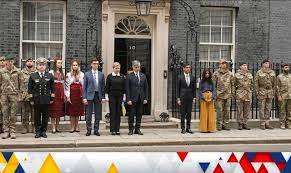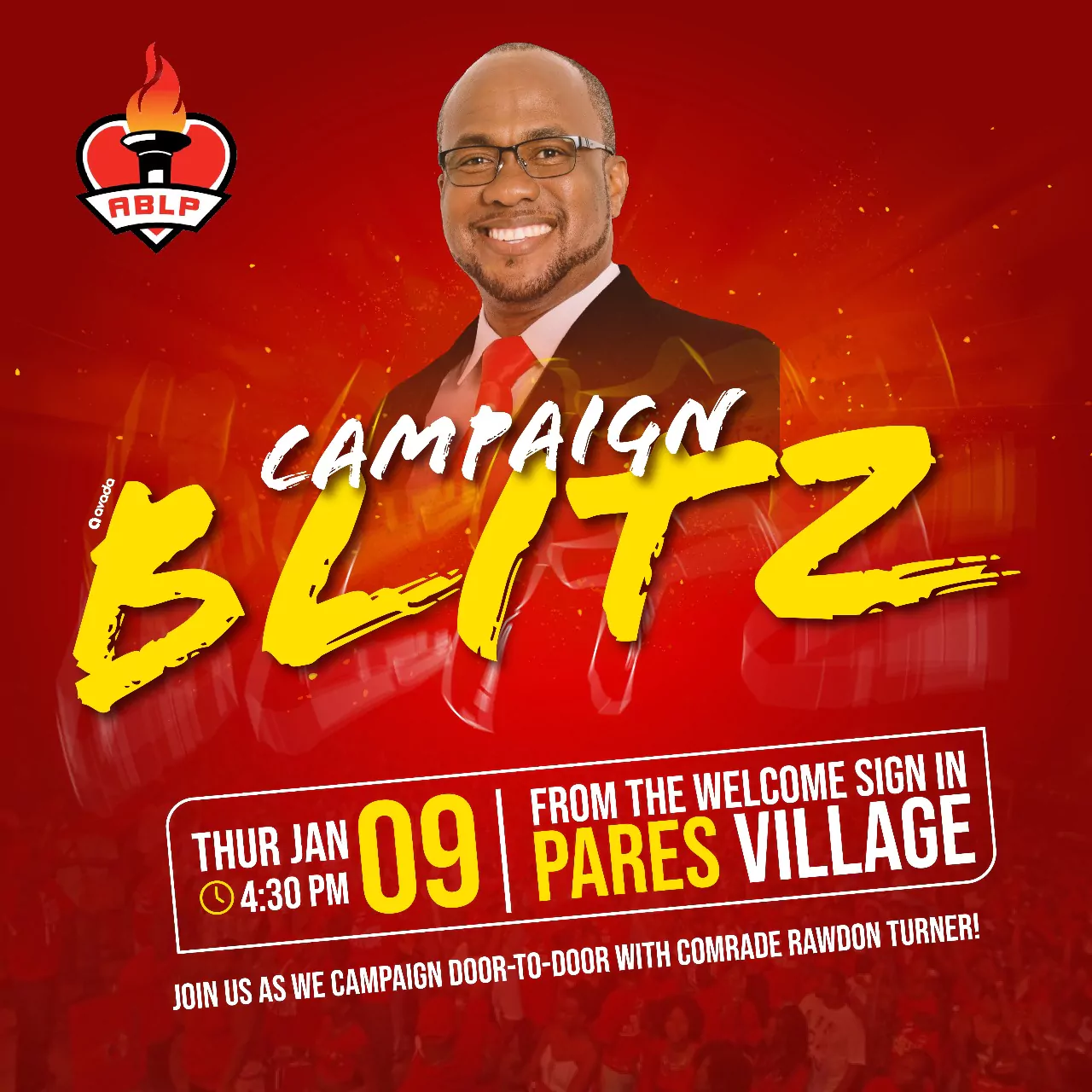
At 11am this morning (24 February) the UK stopped for a minute’s silence to mark the one year anniversary of Vladimir Putin’s war in Ukraine. At No.10 Downing Street Prime Minister Rishi Sunak, together with his his wife Akshata Murthy, stood along side Kyiv’s ambassador to Britain, Vadym Prystaiko, and Ukrainian troops who are being trained in the UK to observe mark of respect. The Ukraine national anthem was also sung, following a short commemoration.
King Charles III sent a heartfelt message to the people of Ukraine, as the UK announced new sanctions, banning the export of every item that Russia has used on the battlefield in Ukraine. Foreign Secretary James Cleverly said sanctions have been extended to more products, including aircraft parts, radio equipment and electronic components.
President Volodymyr Zelenskyy presented awards in his country’s capital to surviving soldiers and relatives of fallen “heroes”, describing the past year as one of “pain, sorrow, faith and unity”. At around the same time, the general assembly of the United Nations voted overwhelmingly for Russia to pull out of Ukraine and to take accountability for its war crimes.
On a day of reaffirming commitments, President of the European Commission, Ursula von der Leyen said the EU would be with Ukraine “for as long as it takes.”
Shocking numbers of casualties on both sides in first year
The conflict, which began 24 February 2022, has seen at least 100,000 of each side’s soldiers killed or injured, plus thousands of civilians have lost their lives, with more than 13 million people made refugees within Ukraine. Those types of numbers are difficult to comprehend and sadly it shows no sign of stopping any time soon.
King sends personal message
Earlier this month King Charles III met with Mr Zelenskyy at Buckingham Palace, and he was keen to send a personal message on the first anniversary of the illegal Russian invasion. In it he praised the “remarkable courage and resilience” of the Ukrainian people “in the face of such human tragedy.”
He said the country had suffered “unimaginably from an unprovoked full-scale attack on their nation.” He added that the world has watched in horror at all the unnecessary suffering inflicted upon Ukrainians, many of whom he said, “I have had the great pleasure of meeting here in the UK and, indeed, across the world.”
He closed his message by saying he hoped the outpouring of solidarity from across the globe might bring not only practical aid, but also strength from the knowledge that, “together, we stand united.”
Ambassador tells of change in role
Dame Melinda Simmons, the British Ambassador to Ukraine has looked back on the past year recalling how at the outbreak of the war her role became a completely different one. She said: “It stopped being a job and became a life, because war isn’t just a five day thing.”
PM commits to accelerate support
PM Mr Sunak said he firmly believes that an acceleration in support for Ukraine is “what it will take to shift Putin’s mindset.” He made it clear that it has to be the priority and “instead of an incremental approach, we need to move faster on artillery, armour, and air defence.” He stopped short of declaring his willingness to supply fighter planes though.
Nothing ruled out
However, Defence Secretary Ben Wallace said the UK would be “very happy” to supply fighter jets to eastern European allies so they could release their Soviet-era planes to Ukraine. He said they were already being used by Kyiv and it would be a faster way of boosting Ukraine defences, rather than supplying British Typhoons.
He added that: “The one thing I have learnt in this conflict is you can’t rule anything in and rule anything out.” Mr Wallace paid tribute to Ukrainian soldiers on this first anniversary, calling them the “bravest of the brave”.
UN calls for Russian accountability
The United Nations, not for the first time, called for the immediate Russian withdrawal, in full knowledge that such a demand will fall on deaf ears at the Kremlin. They voted overwhelmingly for Russia to pull out of Ukraine and for them to take accountability for war crimes.
Only six nations – Belarus, North Korea, Eritrea, Mali, Nicaragua and Syria, voted with Russia against the resolution which called for a comprehensive, lasting and just peace. China, India, Iran and South Africa were among the 32 countries that abstained.
Ukrainian president looks back at year they showed their “invincibility”
Mr Zelenskyy looking back on traumatic year, recalled the 24 February 2022 and called it “the longest day of our lives, and the most difficult day in our recent history.” Adding that the country “woke up early and haven’t slept since.” He attended a parade and memorial service in central Kyiv and said Ukraine had become one family, withstanding all threats, shelling, cluster bombs, cruise missiles, kamikaze drones, blackouts and cold. “We were not defeated, and we will do everything to gain victory this year.”
In a video that he posted, images of destroyed cities and families torn apart were seen alongside what he hailed as the “bravery” of the Ukrainian people, and it looked back on a year of what he called “hope, endurance and invincibility”.
He has spent much of the last few weeks visiting many of the big European capitals, appealing to their leaders to let him have their fighter jets. For now he has had to make do with tanks and armoured vehicles, as there are concerns among in the West that the Ukrainians could use the aircraft to strike targets inside Russia. Which would take the war into a really difficult place.
Remembering the start of the war amongst the Ukrainians
Twelve months ago in Bucha, just outside Kyiv, 67-year-old Volodymyr Scherbynyn watched as more than a hundred Russian military vehicles rolled into town. For Putin this was part of his blitzkrieg, his rapid and overwhelming take over of his neighbours territory, but what Volodymyr was seeing was what would become part of a massive 35 miles (56 km) long traffic jam, which consisted of ten separate Russian tactical battalion units. It included some 1,000 tanks, 2,400 mechanised infantry vehicles and 10,000 personnel, as well as dozens of supply trucks.
They had the directive to overthrow Ukraine’s capital city and remove the government. They were ill-prepared, had insufficient ammunition and lacked food, fuel, and up-to-date maps. They committed military suicide by travelling in a long convoy in hostile territory. Volodymyr and his twelve fellow volunteers, had one machine gun between them. They took down all the road signs, built checkpoints, and prepared hundreds of petrol bombs. They battered the tanks with what little they had, setting them on fire and slowing the convoy to a standstill.
Roman Pohorily explained how the arrogance of the Russian soldiers helped the Ukrainians plot their whereabouts. “They were posting videos on social media, which we reposted to expose their movements. They were just showing off, but in doing so, they got busted,” he said. “Everyone wanted to defend their city, we were a united Ukraine.”
Ill-prepared
The Russians were apparently carrying with them large metal boxes marked ‘secret’, and after seizing one in an ambush, maps marked with their entire route were discovered, although many of the maps were completely out of date. The Ukrainians simply blew up bridges and dams ahead of the convoy, forcing the Russians to reroute, but using old maps they often ended up literally driving around in circles.
This indirectly had a shocking backlash as the stalled Russian soldiers robbed everything from everywhere and also used civilians as human shields. Indeed, the events in many of the villages and towns to the north and west of Kyiv, are still being investigated by numerous authorities, including the International Criminal Court.
After four long weeks the Russians started to withdraw and fell back to the Belarus border.
Business as usual in Russian cities
For the Russian public, especially in the big cities, life is still pretty much the same. Everywhere is still open and although prices have risen, local alternatives to some imported goods are enabling people to get by. With no freedom of speech it is almost impossible to gauge opinion on the war.
Most in truth don’t understand it, and they find it difficult, or choose not to, make any sense of it. They seem to close their eyes and ears to Ukrainian suffering, preferring to keep their heads down and steer clear of politics. In Russia, if anyone were to speak out against the war they would almost certainly face jail, so the harsh fact is that normal Russians pay the price with their freedom, whereas the Ukrainians are paying with their lives.












0 Comments